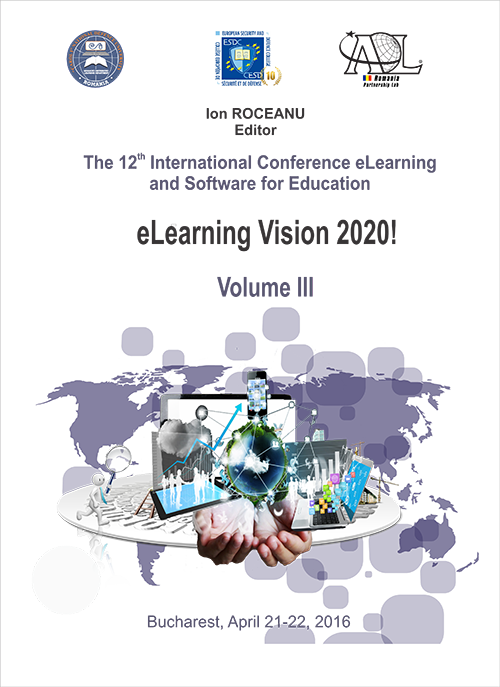BLENDED LEARNING IN FOOTWEAR CAD
BLENDED LEARNING IN FOOTWEAR CAD
Author(s): Mariana Costea, Aura MihaiSubject(s): ICT Information and Communications Technologies, Sociology of Education
Published by: Carol I National Defence University Publishing House
Keywords: blended learning; footwear 3D CAD; VET teachers; trainers; tutors;
Summary/Abstract: This paper approaches the main aspects of blended learning applied through the piloting sessions of INGA 3D project, Creative Transfer of Competence in 3D Footwear CAD to VET Professionals. The INGA 3D project is running within the framework of the Lifelong Learning Program - Transfer of Innovation. The aim of the project is to transfer innovative software solutions and 3D footwear CAD technologies, respectively Icad3d+ software, produced by Spain. The project is addressed to VET teachers, trainers, tutors who work with highly specialized footwear CAD technologies. The project partners are universities, research & training centres, and IT companies: 'Gheorghe Asachi' Technical University of Iasi (Romania), INESCOP (Spain), IED-European Institute of Design (Spain), University of Salford (United Kingdom), Virtual Campus (Portugal), RED 21(Spain). The e-learning tools developed include web-based and educational media like videos, assessment tasks and demonstrative resources with learning purposes that emphasize and enrich the lessons' content. The lessons are designed as tutorials which cover the 3D modelling steps and the necessary Icad3d+ tools for completing basic footwear models by: processing the lasts, designing the 3D model lines, transferring and controlling 3D lines with 2D drawings, creating pieces, adding texture, stitches and accessories, modelling the 3D shape of sole and heel, rendering. The piloting of two modules of INGA 3D program has been helpful in relation to further development of the e-learning resources. Overall, the participants achieved a lot in a little time. The evaluation was based on the answers and feedback of a questionnaire applied to 35 Romanian participants to the course. Apart from the necessary information for improvements of the training contents and e-learning tools, all piloting sessions bring positive comments.
Journal: Conference proceedings of »eLearning and Software for Education« (eLSE)
- Issue Year: 12/2016
- Issue No: 03
- Page Range: 473-478
- Page Count: 6
- Language: English

